
Psychology of Language department
Using language is central to our social and cultural lives. Psychologists and psycholinguists have extensively studied the processes involved in speaking and listening, reading and writing. Most of this work has been done in laboratory contexts, where participants - usually psychology students - carry out rather unusual tasks, such as reading aloud meaningless letter strings. Here at the Psychology of Language Department we also carry out such lab research, but our main goal is to understand how speaking, listening, reading and writing take place in real-life contexts, for instance in informal conversation. We also aim to understand how people with varied educational and cultural backgrounds (ranging from highly literate academics to illiterate adults) differ in their language skills and the ways they use language. Insights into individual differences in language skills and language use in everyday contexts can have important practical implications, for instance for improving language testing and training programs.
Antje Meyer
- What interests us?
-
These are just some of the broad questions were are currently working on:
- Which basic cognitive and linguistic components are there? What is the most parsimonious way of describing the cognitive system underlying language?
- How do human listeners "distil" a communicative message from such a transitory acoustic speech signal?
- How do speakers and listeners generate larger linguistic units (e.g. phrases) from smaller ones (e.g. words)?
- How can we represent grammatical knowledge and grammatical encoding processes in a strongly incremental, lexically driven system? Is it useful to distinguish between a lexicon and a grammar?
- Which cognitive processes contribute most to individual differences in language skills?
- How do interlocutors affect each other in conversation?
- How does culture (especially the use of written language) shape cognition and language?
- How do we approach our research?
-
At the heart of our research is the guiding theoretical principle that there is a small set of basic cognitive components that, in different combinations, cover all of the ways language is used in every day and laboratory contexts. Our task is to identify these basic cognitive components and to generate theories that explain how they are combined when people use language.
To carry out this work, we use an eclectic mix of methods, including psycholinguistic experiments, individual differences studies, neurobiological methods, and computational modelling. One of our missions at the department is to develop new methods and analysis tools and make them available to the research community.
Research Clusters
-
Falk Huettig, Senior Investigator
-
Language Processing and Learning Cluster
Candice Frances
-
Individual Differences in Language Skills
Kyla McConnell
-
Prosody production and perception
Stan van der Burght
-
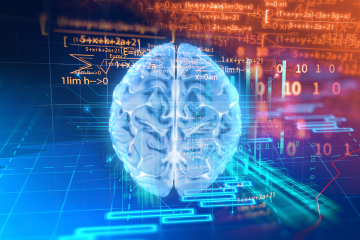 15 July 2022
15 July 2022Sentences have their own timing in the brain
Our brain links incoming speech sounds to knowledge of grammar, which is abstract in nature. But how does the brain encode abstract sentence structure? In a neuroimaging study published in PLOS...
-
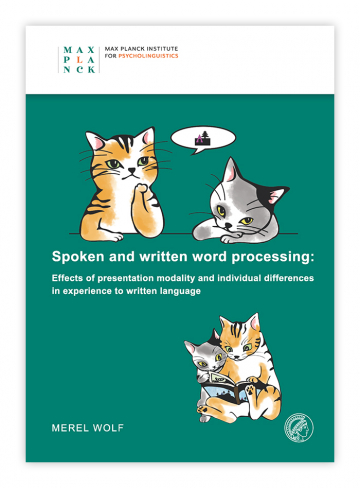 24 January 2022
24 January 2022Merel Wolf will defend her thesis on Monday 14th of February 2021
On Monday 14 February 2022, at 10.30, Merel Wolf will defend her thesis entitled 'Spoken and written word processing: Effects of presentation modality and individual differences in experience to...

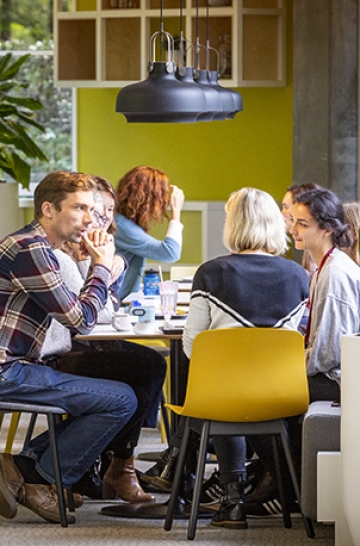
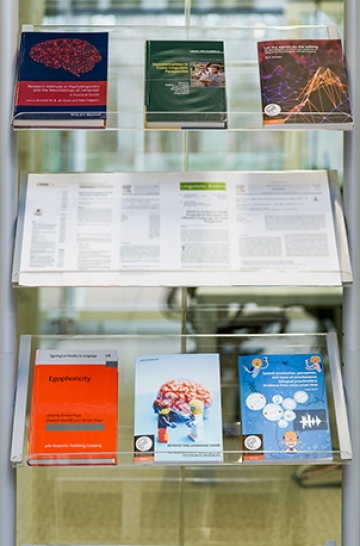
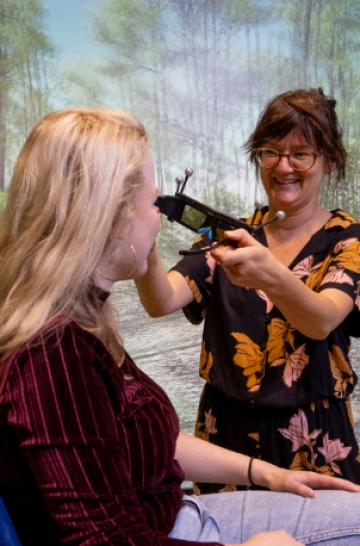
Share this page